Diplomacy in an Era of upheaval: Jordans Calculated Approach to Syria - By Farrah Al Abdallat, Jordan News
New survey data and recent developments highlight Jordan’s pragmatic engagement with Damascus, reflecting a shift from ideological alignment to stability-driven diplomacy.
A nationally representative sample of 1,200 adults aged 18 and above was developed by NAMA’s methodological specialist to ensure that the survey captures the perspectives of Jordan’s population in a statistically sound manner. The design used probability proportional to size, allowing reliable estimation across the entire country, including both rural and urban settings, all twelve governorates, and diverse local communities. For analysis purposes, governorates were organized into three regions: the North (Ajloun, Irbid, Jerash, Mafraq), the Center (Amman, Balqa, Madaba, Zarqa), and the South (Aqaba, Karak, Ma’an, Tafieleh), supporting precise comparison across key geographic areas.
Syria’s transition from the brink of state failure to its current, more functional footing has been anything but straightforward, recent visits by diplomats, regional officials, and international representatives suggest a perceptible shift. Once widely dismissed as a failed state, Syria is increasingly being acknowledged as a re-emerging actor capable of governance. Nonethless, uneven that progress may still be Jordan’s approach toward Syria has taken a decisive turn from isolation to cautious engagement.
After more than a decade of diplomatic frost triggered by the Syrian conflict, Jordan has restored full ambassadorial representation in Damascus, marking a significant recalibration in its approach to its northern neighbor. Amman first recalled its ambassador in 2011 as violence escalated, and by 2014 both countries had expelled each other’s envoys amid deepening political strain. For years, relations were managed at the level of a chargé d’affaires, a symbol of cautious distance1. The recent presentation of credentials by Jordan’s Ambassador to Syria, H.E. Sufian Al-Qudah, marks a vital moment, the full reactivation of diplomatic relations after more than a decade of disruption2. This shows Jordans commitment towards ongoing regional efforts to support Syria’s postwar political and economic stabilization.
In the economic sphere, this move comes on the heels of renewed technical cooperation over the Yarmouk River Basin, where officials from both countries have agreed to restore coordination mechanisms to manage shared water resources-a critical step amid Jordan’s intensifying water scarcity. Jordan has consistently faced smuggling threats along its border with Syria, and recent joint anti-narcotics efforts signal a clearer shift toward practical security cooperation. These coordinated actions, which have already led to the interception of multiple smuggling attempts and the seizure of substantial quantities of narcotics, reflect a growing recognition on both sides that shared border challenges demand shared solutions3. Together, these developments signal a new phase in Amman’s diplomacy: one grounded in pragmatism, stability, and necessity.
1 Al Arabiya English, “Jordan Appoints a Chargé d’Affaires at Its Embassy in Damascus,” January 23, 2019, accessed [leave blank if no access date required]. Available at: https://english.alarabiya.net/News/middle- east/2019/01/23/Jordan-appoints-a-charg-d-affaires-at-its- embassy-in-Damascus
2 Jordan News Agency (Petra), “Ambassador Qudah Submits Credentials to Syrian President,” Petra, September 6, 2025, https://petra.gov.jo/Include/InnerPage.jsp?ID=75297Clang=enCname=en_news
3 Jordan News Agency (Petra). “Jordan, Syria’s anti-narcotics departments issue statement, stressing continued cooperation against drug
trafficking.” Amman, October 5 2025.
The Survey conducted by NAMA depicted strong public support for this recalibration. A striking 95.4 % of Jordanians favor maintaining or strengthening relations with Syria’s government under Ahmad Al Sharaa’s leadership. Broken-down, 58.3 % see it taking place through gradual engagement while 37.1% through more hardline cooperation. This marks a striking shift from the years immediately following the Syrian conflict, when public sentiment leaned toward caution or disengagement. Crucially, public confidence in Syria’s new leadership remains cautiously optimistic. Most respondents exhibit a degree of trust in Ahmad Al Shara’, with 47.9 % indicating they “somewhat trust” his leadership and an additional 17 % expressing full confidence. This positions public sentiment firmly in the realm of measured optimism rather than blind endorsement. Meanwhile, skepticism persists among a combined 30 % who express limited or no trust, reflecting enduring doubts rooted in years of volatility and uncertainty in Syrian politics. Only 5 % remain undecided. Taken together, the data suggests that Jordanians are open to renewed engagement with Damascus but are still withholding full confidence until tangible improvements in governance and cooperation are demonstrated.
Interestingly, the survey data also reveal that Syria has virtually disappeared from Jordan’s security threat landscape, with fewer than 1 % of respondents identifying it as a current threat. Rather, Jordanians overwhelmingly cite other regional sources of instability, while simultaneously expressing support for stronger national defense and regional coordination. This evolving perception underscores that re-engagement with Syria is not seen as risky-but as stabilizing. In an environment where 85 % of Jordanians still describe the Middle East as “unstable,” closer cooperation with Damascus appears to many as a matter of strategic prudence rather than political alignment.
At the policy level, Jordan’s gradual rapprochement is defined by function over form. Water sharing through the Yarmouk River agreement, coordination on border security, and discussions on trade and refugee management illustrate a pragmatic diplomacy driven by necessity. Rather than seeking ideological convergence, Amman is pursuing stability through technical cooperation and managed normalization. This measured approach mirrors public sentiment: a desire to restore ties without overexposure, rebuild communication channels, and address shared challenges through incremental trust-building.
In this sense, Jordan’s outreach to Syria reflects a broader transformation in its regional strategy-from mediator to stabilizer. Once known for its role as a bridge between rival blocs, Amman is now prioritizing practical engagement to safeguard domestic interests and regional balance. The resumption of full diplomatic representation and the revival of the Yarmouk cooperation mechanism highlight how essential resources and security considerations have overtaken political divides.
Ultimately, Jordan’s renewed diplomatic engagement, evidenced by the reinstatement of its ambassador to Syria, aligns directly with public sentiment favoring closer ties. If translated into deeper economic integration and cooperation, this shift could serve as a cornerstone for reinforcing economic resilience, ensuring mutual benefit in the face of regional volatility.
Latest News
-
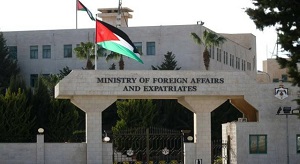 Jordan condemns Israeli minister’s calls to target Palestinian leadership
Jordan condemns Israeli minister’s calls to target Palestinian leadership
-
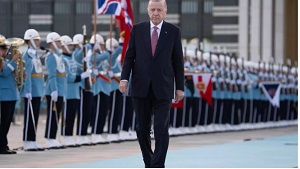 Turkey seeks to host next COP as co-presidency plans falter
Turkey seeks to host next COP as co-presidency plans falter
-
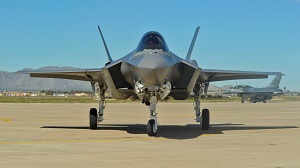 ‘Israel’ open to US F-35 sale to Saudi if it brings normalization: Axios
‘Israel’ open to US F-35 sale to Saudi if it brings normalization: Axios
-
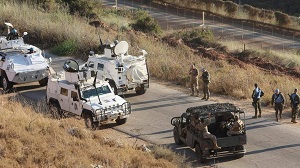 "Israeli tank fires near our forces in Lebanon," UNIFIL
"Israeli tank fires near our forces in Lebanon," UNIFIL
-
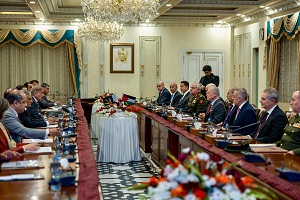 King meets with Pakistan PM in Islamabad, emphasises importance of expanding cooperation
King meets with Pakistan PM in Islamabad, emphasises importance of expanding cooperation